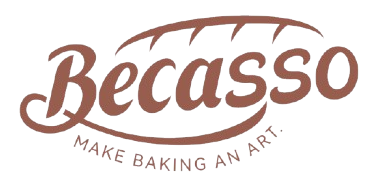Somun Tavanız İçin En İyi Malzemeyi Seçme
Konu lezzetli ekmek pişirmek olduğunda, Somun Tavanız için En İyi Malzemeyi Seçmek Doğru somun tavasını seçmek nihai sonuçta büyük fark yaratabilir. Somun tavanızın malzemesi, ısı dağılımından temizlik kolaylığına kadar pişirme sürecini önemli ölçüde etkileyebilir. Bu makalede, mevcut farklı malzemeleri inceleyecek ve ihtiyaçlarınız için en iyisini seçmenize yardımcı olacağız.
Somun Tavanız İçin En İyi Malzemeyi Seçerken Dikkat Etmeniz Gereken Faktörler
Bir somun tavası seçerken birkaç temel faktör göz önünde bulundurulmalıdır:
Isı İletkenliği:
- İyi bir ısı iletkeni eşit pişirme sağlar ve sıcak noktaları önler.
- Alüminyum ve dökme demir gibi metaller mükemmel ısı iletkenleridir.
Dayanıklılık:
- Dayanıklı bir somun tavası sık kullanıma ve yüksek sıcaklıklara dayanacaktır.
- Dökme demir ve paslanmaz çelik dayanıklılıklarıyla bilinir.
Yapışmaz Özellikler:
- Yapışmaz tavalar, pişmiş ürünlerin serbest bırakılmasını ve temizlenmesini kolaylaştırır.
- Silikon ve yapışmaz kaplamalı metaller mükemmel yapışmazlık özellikleri sunar.
Temizlik Kolaylığı:
- Pürüzsüz, gözeneksiz bir yüzeyin temizlenmesi daha kolaydır.
- Cam ve silikon tavaların temizlenmesi genellikle metal tavalara göre daha kolaydır.
Somun Tavaları için En İyi Malzemeler
Alüminyum
- Avantajlar:
- Mükemmel ısı iletkenliği
- Dayanıklı ve uygun fiyatlı
- Dezavantajları:
- Terbiye edilmez veya kaplanmazsa yapışmaya meyilli
- Asitli gıdalarla reaksiyona girerek lezzeti etkileyebilir
Cam
- Avantajlar:
- Eşit ısı dağılımı
- Pişirme ilerlemesini izlemek için net görünürlük
- Kolay temizlenir
- Dezavantajları:
- Kırılgan ve kırılmaya eğilimli olabilir
- Isınması ve soğuması daha uzun sürebilir
Silikon
- Avantajlar:
- Esnek ve yapışmaz
- Kolay temizlenir
- Yüksek sıcaklıklara dayanıklı fırın
- Dezavantajları:
- Metal tavalar kadar dayanıklı olmayabilir
- Özellikle sıcakken kullanımı daha zor olabilir
Somun Tavanızın Bakımı için İpuçları
Doğru Temizlik:
- Ilık, sabunlu su ile elde yıkayın.
- Aşındırıcı temizleyiciler kullanmaktan kaçının.
- İnatçı kalıntıları ılık suda bekletin.
- Pas ve su lekelerini önlemek için iyice kurulayın.
Somun Tavanızı Saklama:
- Serin ve kuru bir yerde saklayın.
- Hasarı önlemek için tavaları üst üste koymaktan kaçının.
- Metal tavalarda paslanmayı önlemek için hafif bir yağ tabakası uygulamayı düşünün.
Sıkça Sorulan Sorular
Somun tavasında ekmek pişirmek için en iyi malzeme nedir?
Ekmek pişirmek için en iyi malzeme tercihlerinize ve ihtiyaçlarınıza bağlıdır. Somun Tavanız İçin En İyi Malzemeyi Seçme Alüminyum mükemmel ısı iletkenliği sağlar, cam net görüş sağlar ve silikon esnek ve yapışmazdır. En iyi seçimi yapmak için pişirme tarzınızı ve her malzemenin kendine özgü özelliklerini göz önünde bulundurun.
Yapışmaz somun tavası ile metal kaplar kullanabilir miyim?
Yapışmaz yüzeylerde metal kaplar kullanmaktan kaçınmak genellikle en iyisi olsa da, Somun Tavanız İçin En İyi Malzemeyi Seçmek silikon veya ahşap kapların hafifçe kullanılması kabul edilebilir. Metal mutfak eşyaları yapışmaz kaplamayı çizerek zamanla performansını düşürebilir.
Somun tavaları genellikle ne kadar dayanır?
Bir somun tavasının ömrü malzemeye, bakıma ve kullanım sıklığına bağlıdır. Uygun bakımla, yüksek kaliteli bir somun tavası uzun yıllar dayanabilir. Ancak, Somun Tavanız İçin En İyi Malzemeyi Seçmek aşırı kullanım veya yanlış temizlik ömrünü kısaltabilir.
